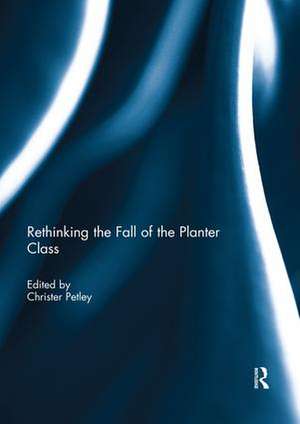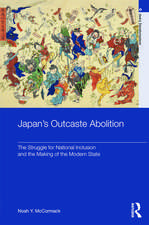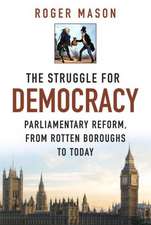Rethinking the Fall of the Planter Class
Editat de Christer Petleyen Limba Engleză Paperback – 10 ian 2019
| Toate formatele și edițiile | Preț | Express |
|---|---|---|
| Paperback (1) | 407.19 lei 6-8 săpt. | |
| Taylor & Francis – 10 ian 2019 | 407.19 lei 6-8 săpt. | |
| Hardback (1) | 1162.08 lei 6-8 săpt. | |
| Taylor & Francis – 4 oct 2016 | 1162.08 lei 6-8 săpt. |
Preț: 407.19 lei
Nou
Puncte Express: 611
Preț estimativ în valută:
77.92€ • 81.56$ • 64.85£
77.92€ • 81.56$ • 64.85£
Carte tipărită la comandă
Livrare economică 31 martie-14 aprilie
Preluare comenzi: 021 569.72.76
Specificații
ISBN-13: 9780367029609
ISBN-10: 036702960X
Pagini: 138
Dimensiuni: 174 x 246 x 8 mm
Greutate: 0.24 kg
Ediția:1
Editura: Taylor & Francis
Colecția Routledge
Locul publicării:Oxford, United Kingdom
ISBN-10: 036702960X
Pagini: 138
Dimensiuni: 174 x 246 x 8 mm
Greutate: 0.24 kg
Ediția:1
Editura: Taylor & Francis
Colecția Routledge
Locul publicării:Oxford, United Kingdom
Public țintă
Postgraduate and UndergraduateCuprins
1. Rethinking the fall of the planter class 2. Et in Arcadia ego: West Indian planters in glory, 1674–1784 3. Sugar, spirits, and fodder: The London West India interest and the glut of 1807–15 4. The rise of a new planter class? Some countercurrents from British Guiana and Trinidad, 1807–33 5. Gluttony, excess, and the fall of the planter class in the British Caribbean 6. The decline of Jamaica’s interracial households and the fall of the planter class, 1733–1823
Notă biografică
Christer Petley is a Senior Lecturer in History at the University of Southampton, UK. Among his publications are Slaveholders in Jamaica: Colonial Society and Culture during the Era of Abolition (2009) and articles in Atlantic Studies, Slavery & Abolition and The Historical Journal
Descriere
This book brings together chapters by a group of leading scholars to rethink the question of the ‘fall of the planter class’, offering a variety of new approaches to the topic, encompassing economic, political, cultural, and social history. It provides a significant new contribution to our rapidly evolving understanding of the end of slavery in the British Atlantic empire. This book was originally published as a special issue of Atlantic Studies.











